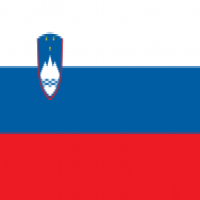Summary:
A Slovenian research institute has developed innovative method for recovery of magnetic grains from bulk sintered magnets. The method is facile, cost-effective, energy efficient and environmentally friendly. Partners are sought amongst the magnet manufacturers and companies that recycle magnets for technical cooperation agreements and license agreement to scale up and apply the technology in their production.
Description:
Neodymium iron boron (Nd-Fe-B) magnets are widely used in many applications such as hard disk drives, wind turbines, industrial motors, acoustic transducers and electric vehicles due to their high energy density. They incorporate 20-30 wt% of rare earth elements (REEs) so they represent an important secondary REEs resource.
Since primary mining of REEs leads to a large environmental footprint associated with chemical usage and harmful emissions and the REEs are considered the most critical based on their economic importance and supply risk. Despite their criticality, currently, less than 1% of REEs are being recycled from end of life products. Up to 30% of the starting REE alloy can be lost during the magnet manufacturing process. Therefore, the recycling of the end-of-life Nd-Fe-B magnets or other magnet scraps has been considered as an important strategy to reduce the environmental risks related to rare earth mining and overcome the supply risk of REEs.
A Slovenian research institute has developed novel method for recovery of Nd2Fe14B grains from bulk sintered Nd-Fe-B magnets and magnets scraps by electrochemical etching. Nd-Fe-B magnets or magnet scraps are anodically oxidized using a non-aqueous liquid electrolyte, the anodic oxidation releasing the Nd2Fe14B grains in Nd-Fe-B magnets or magnet scraps, wherein the released Nd2Fe14B grains are collected during or after the anodic oxidation. Currently the research group can produce few dozens grams of Nd2Fe14B grains using this procedure. In order to apply the procedure on industrial level, the method needs to be scaled up. For the scale up, large baths for anodic oxidation and engineering knowledge are needed.
The research group has numerous experience in magnetic materials and their development, access to research infrastructure, as well as several cooperation projects with industry.
The research institute is looking for industrial partners for technical cooperation agreement and license agreement. Industrial partners should be manufacturers of magnets or companies that recycle magnets and magnet scraps. Expertise in electrochemistry is desired. Within the technical cooperation agreement the partner sought shall jointly scale up the method and employ the method in their production. In case successful implementation of the method in production the license agreement shall be signed.
Type (e.g. company, R&D institution…), field of industry and Role of Partner Sought:
Type: Manufacturers of magnets and companies that recycle magnets and magnet scraps.
Role: The role of partner sought is to jointly scale up the method for recycling magnets and employ the method in their production within technical cooperation agreement. In case of successful implementation, the license agreement for the innovative method shall be signed.
Stage of Development:
Under development/lab tested
IPR Status:
Patent(s) applied for but not yet granted
Comments Regarding IPR Status:
Patent application filed at the European Patent Office which issued positive report about the patentability. Patent applications based on same invention filed in USA, China and Japan.
External code:
TOSI20200930001








